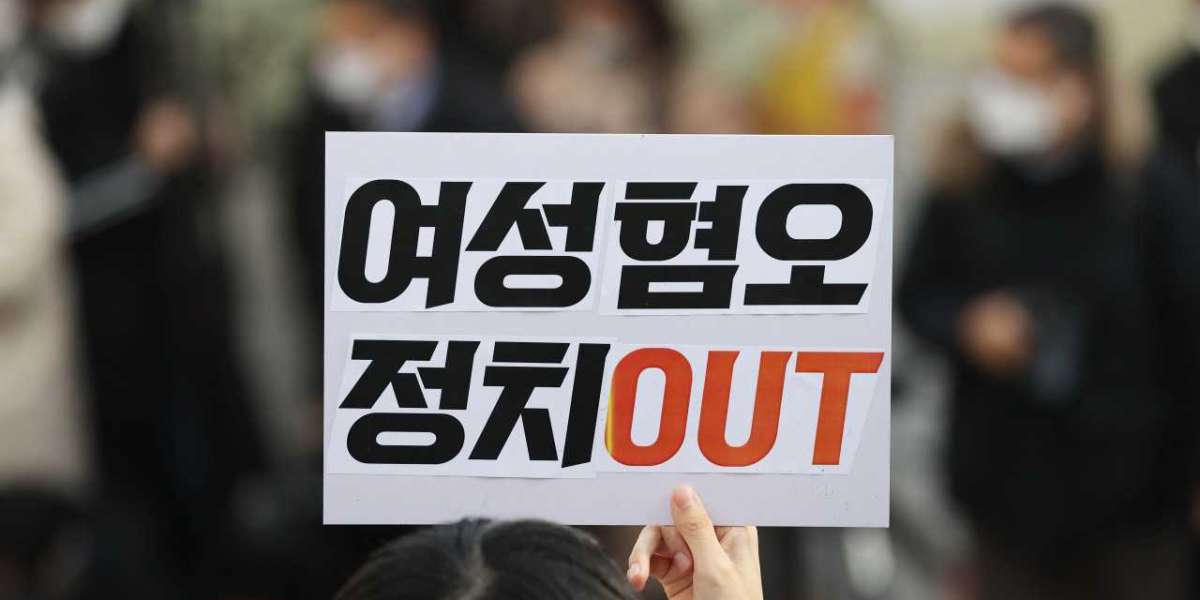The death of livestreamer Jammi, whose true name is Cho Jang-mi, made headlines in South Korea this week after she was found dead in her home. She committed herself, it has been revealed, after "suffering from extreme despair as a result of hostile internet remarks and rumors," according to an online message published by a member of her family about her death.
In 2019, the 27-year-old, who used to stream on YouTube and Twitch, was accused of being a radical feminist because of her views on gender equality.
The allegations began after she made a pinching motion with her hand, which some believed was a misandrist gesture. This hand gesture was allegedly invented by radical feminists and is meant to criticize the size of male genitalia, according to some. Many South Korean firms were obliged to apologize last year after some customers objected to the use of a hand gesture in some of their promotional materials.
Jammi was not the only one who had this experience. Numerous other women have also been the victim of online abuse, primarily from male users, as a result of their association with feminism.
A campaign to raise awareness about dating violence was launched in October by Jun Hyo-seong (a former member of the K-pop girl group Secret), who collaborated with the Ministry of Gender Equality and Family to raise awareness about the issue.
"When I'm driving home at night and it becomes dark, I question myself, 'Can I make it home safely and alive today?'" she asked in a video that has received more than 450,000 views on YouTube.
"I believe that a free society in which people may fall in love when they want and break up when they want is also a safe society," she continued.
Her comments were quickly received with outrage from members of online male groups who felt "betrayed" as her admirers as a result of her comments. She was accused of jumping on the feminist bandwagon after profiting on her sex appeal as a K-pop idol, according to many who objected to her actions.
"She's blaming her former male followers, who used to admire her, of being potential criminals," one YouTube commentator observed.
The outpouring of rage spilled out onto the streets. A prominent right-leaning anti-feminist group, "New Man on Solidarity," took to the streets of Hongdae, a neighborhood popular among young people in November, to denounce feminism and call on politicians to abolish the Gender Equality Ministry. The group claims they are not misogynists, but they claim to be.
In the midst of the demonstration, a billboard picturing Jun in a maid costume surfaced with the statement, "You won't be able to receive the femi coin, sister."
A member of the K-pop idol group Red Velvet, Irene, received outrage in South Korea last year after claiming to have read "Kim Ji-young, Born 1982," a famous feminist novel about a stay-at-home mother who encounters sexism on a daily basis.
During the dispute, images of Irene's photographs being destroyed or chopped were shared on the internet.
In the opinion of cultural critic Sohn Hee-jeong, "When the victim is labeled as someone who is helpless and unable to protect oneself, they are more susceptible to attacks from male dominated online groups."
"They believe they have the right to attack since they have invested so much money and time on the project, and they almost feel betrayed," explains the author.
According to visiting professor Lee Jong-im, who teaches graduate journalism and communication students at Kyung Hee University, it is already difficult for celebrities to comment on politics and social issues in South Korea, but it is far more difficult for idols to do so.
"Idols are supposed to adhere to this idealized picture of purity that has been created. When the issue of gender equality is brought into the equation, "discussing their tales or principles goes beyond the domain of idols that the public expects them to remain in," Lee explained.
"Narrow" expectations are put on female idols and streamers by male viewers, according to Professor Lee.
A voice actor for the online video game Closers was sacked in 2016 after posting a picture of herself wearing a T-shirt that read 'Girls Do Not Need a Prince' and receiving a lot of reaction from male fans.
Commenting and criticizing in a hateful manner did not elicit any counter-commenting or criticism." Instead, (the users) perceived their expectations as customers as being met, lending credence to the attacks on women."
According to a 2018 research published by the Korean Women's Development Institute, a government think tank, one in every two males in their twenties in South Korea is anti-feminist in their views on gender equality. According to the same poll, just one in every four young males considered women to be "weaker than men" or in need of protection.
However, many people looking in from the outside have been perplexed by such strong anti-feminist sentiment in a country that has the biggest gender wage disparity among the OECD countries.
According to a research published in 2021 by the Ministry of Gender Equality, women in the nation also perceive themselves as less safe than males. When asked whether they felt safe from crime, just 21.6 percent of women responded positively, compared to 32.1 percent of males.
According to police data, more than 80,000 occurrences of dating violence were reported to authorities between 2016 and 2020, with 227 of those cases resulting in death. The figure increased steadily from 9,364 in 2016 to 18,945 in 2020, representing a consistent increase.
So why is feminism so despised in a society that appears to be in desperate need of it?
Anti-feminist attitude is nothing new in today's world. However, it appears to have grown more confident in recent years, since platforms and web portals have made it possible for individuals to profit off hatred and fury, according to Sohn, the culture critic.
According to her, "we need to look at how there is a market for hate toward not only women but minorities on sites like YouTube where you can receive attention and make money — it's a business of hate."
"The more inflammatory the topic, the more attention and money you will receive as a result of your efforts."
YouTube producers may make money by monetizing their videos and allowing them to show Google-sponsored advertisements. Female celebrities are disproportionately targeted in these kind of videos, according to her explanation.
Representative Jang Hye-young of the Justice Party stated in a recent interview with The Korea Herald that the pushback against feminism has increased in recent years as issues about women's safety and feminism have grown in importance.
Women's rights activists have earned a reputation as extremists who must be avoided at all costs, according to Jang. "Even though there is widespread support for the idea that gender discrimination, the gender pay gap and violence against women must end, feminists have earned this reputation as a group of extremists, something to be disliked along the way," Jang said.
The feminist movement has achieved significant strides in recent years, most notably with the Supreme Court's decision to abolish a prohibition on abortion.
However, according to Sohn, politicians that take advantage of anti-feminism sentiment are worsening the problem.
"Lee Jun-seok, the leader of the People Power Party, had a significant part in this" (in drumming up anti-feminism sentiment). He is the driving force behind the voices, and he is politicizing them. During the 2016 US presidential election, the People's Power Party is employing strategies that are right out of Donald Trump's playbook.
"In the same way that Donald Trump denigrated CNN as the 'Clinton News Network' and refused to conduct interviews with them, candidate Yoon declined to participate in a television discussion on JTBC, claiming the network's bias." Similarly to Trump, the PPP is attempting to capitalize on anti-Chinese sentiment. It's the same thing when it comes to misogyny."
Yoon Suk-yeol, the presidential candidate of the People's Progressive Party (PPP), who is currently leading in the polls with the election less than one month away, has pledged to dismantle the Ministry of Gender Equality. In addition, the conservative contender has stated that "institutional gender discrimination no longer exists," a statement that echoes one of the anti-feminist clichés that circulates on the internet.
Yoon's speech represents a significant departure from President Moon Jae-stance in's five years ago, when he was inaugurated into office. One of his campaign promises was that he would run for president as a "feminist."
"Hazardous populism that undermines democracy," warned Rep. Jang of the proposed elimination of the Gender Ministry.
"Given the state of gender equality in South Korea, it would be more true to declare that we require a new Ministry of Gender Equality."
Gender equality is one of the few development engines left in the country as it enters a time of low growth. It allows women employees the opportunity to work to their full ability and express their economic power as a result of this. Not only would it assist to strengthen individual human rights, but it would also aid in the development of South Korea's economy, according to the congressman.
"It is exceedingly irresponsible for politicians in responsible positions to claim they would dismantle the Gender Equality Ministry in order to appease some groups at a time when gender equality is a highly significant agenda item," Jang added.



